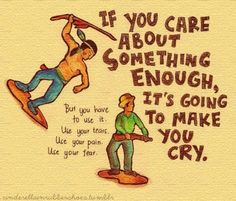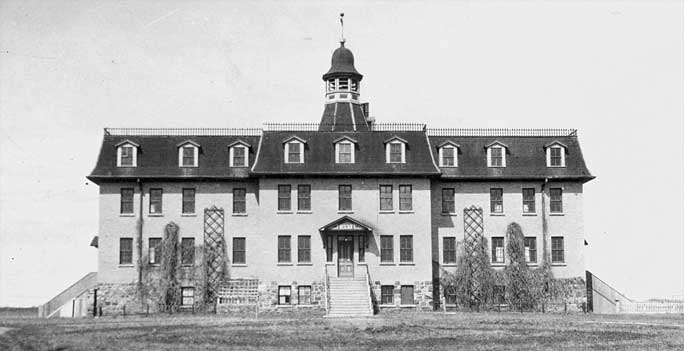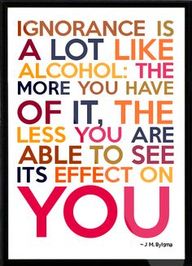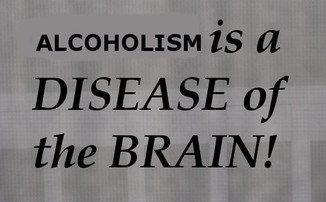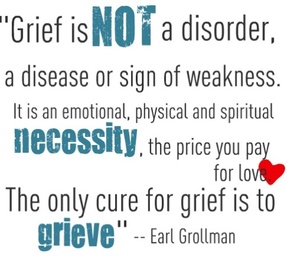The Absolutely True Diary Of A Part - Time Indian - By Sherman Alexi
The History Of Residential Schooling
Please visit this site for more information: The Truth And Reconcilliation Commission Of Canada
Please visit this site to view images related to Residential Schooling: Where Are The Children
This is a passage from The Truth And Reconcilliation Commission Of Canada that we discussed in class:
Residential Schools
Residential schools for Aboriginal people in Canada date back to the 1870s. Over 130 residential schools were located across the country, and the last school closed in 1996. These government-funded, church-run schools were set up to eliminate parental involvement in the intellectual, cultural, and spiritual development of Aboriginal children.
During this era, more than 150,000 First Nations, Métis, and Inuit children were placed in these schools often against their parents' wishes. Many were forbidden to speak their language and practice their own culture. While there is an estimated 80,000 former students living today, the ongoing impact of residential schools has been felt throughout generations and has contributed to social problems that continue to exist.
On June 11, 2008, the Prime Minister, on behalf of the Government of Canada, delivered a formal apology in the House of Commons to former students, their families, and communities for Canada's role in the operation of the residential schools.
The Truth and Reconciliation Commission of Canada
The Truth and Reconciliation Commission of Canada has a mandate to learn the truth about what happened in the residential schools and to inform all Canadians about what happened in the schools. The Commission will document the truth of what happened by relying on records held by those who operated and funded the schools, testimony from officials of the institutions that operated the schools, and experiences reported by survivors, their families, communities and anyone personally affected by the residential school experience and its subsequent impacts.
The Commission hopes to guide and inspire First Nations, Inuit, and Métis peoples and Canadians in a process of truth and healing leading toward reconciliation and renewed relationships based on mutual understanding and respect.
Please visit this site for more information: The Truth And Reconcilliation Commission Of Canada
Please visit this site to view images related to Residential Schooling: Where Are The Children
This is a passage from The Truth And Reconcilliation Commission Of Canada that we discussed in class:
Residential Schools
Residential schools for Aboriginal people in Canada date back to the 1870s. Over 130 residential schools were located across the country, and the last school closed in 1996. These government-funded, church-run schools were set up to eliminate parental involvement in the intellectual, cultural, and spiritual development of Aboriginal children.
During this era, more than 150,000 First Nations, Métis, and Inuit children were placed in these schools often against their parents' wishes. Many were forbidden to speak their language and practice their own culture. While there is an estimated 80,000 former students living today, the ongoing impact of residential schools has been felt throughout generations and has contributed to social problems that continue to exist.
On June 11, 2008, the Prime Minister, on behalf of the Government of Canada, delivered a formal apology in the House of Commons to former students, their families, and communities for Canada's role in the operation of the residential schools.
The Truth and Reconciliation Commission of Canada
The Truth and Reconciliation Commission of Canada has a mandate to learn the truth about what happened in the residential schools and to inform all Canadians about what happened in the schools. The Commission will document the truth of what happened by relying on records held by those who operated and funded the schools, testimony from officials of the institutions that operated the schools, and experiences reported by survivors, their families, communities and anyone personally affected by the residential school experience and its subsequent impacts.
The Commission hopes to guide and inspire First Nations, Inuit, and Métis peoples and Canadians in a process of truth and healing leading toward reconciliation and renewed relationships based on mutual understanding and respect.
Here are some illustrations from the novel
Task
Read the selected story
Answer the questions on the hand - out
Create an image that represents a key idea from the story
Read the selected story
Answer the questions on the hand - out
Create an image that represents a key idea from the story
Alcoholism: We will explore the topic of Alcoholism that is present in our novel.
Genre: Bildungsroman
This is a type of novel that focuses on the psychological and moral growth of the protagonist, from youth to adulthood. the change and growth of a character is important.
Narrative: First person, native American teenage named: Arnold Spirit Jr.
Topics that are presented in the novel are as follows:
Alcohol: When someone drinks alcohol through a re - occurring pattern. The drinking is so excessive that it results in relationship breakdowns, death, suicide, inability to perform certain taks, go to work, and concentration levels.
Bullying: Bullying is a form of violence, this can happen when someone has more power than you, in terms of age, position, gender etc. They decide to use this power to hurt you. This could be psychological, physical, emotional, or sexual abuse.
Violence: This is intentional behaviour that is used to specifically hurt someone. Individuals who are the victims of violence often will feel threatened.
Sexual References: These are when someone who you have had sexual contact with goes around talking to other people about you.
Alcoholism is responsible for the deaths of Arnold Sprit Jr's family members. Junior does not like the fact that alcohol is responsible for the death of his family. He despises Alcohol.
Quotes from the novel:
" 'The whole race is filled with alcoholics. For those Indians who try to pretend its a stereotype, they're in deep denial, and by addressing it that with the social hope that by writing about it, maybe it'll help people get sober, and it has."
"Drinking would shut down my seeing and hearing and my feeling,' she would used to say. 'Why would I want to be in a world if I couldn't touch the world with all of my senses in tact."
"There are all kinds of addicts, I guess. We all have pain. And we all look for ways to make the pain go away." (p.107)
"When it comes to death, we know that laughter and tears are pretty much the same thing." (p.107).
Task 1
Please read the following article and answer the questions on the hand - out. We will then discuss the article and your responses within our learning community.
This is a type of novel that focuses on the psychological and moral growth of the protagonist, from youth to adulthood. the change and growth of a character is important.
Narrative: First person, native American teenage named: Arnold Spirit Jr.
Topics that are presented in the novel are as follows:
Alcohol: When someone drinks alcohol through a re - occurring pattern. The drinking is so excessive that it results in relationship breakdowns, death, suicide, inability to perform certain taks, go to work, and concentration levels.
Bullying: Bullying is a form of violence, this can happen when someone has more power than you, in terms of age, position, gender etc. They decide to use this power to hurt you. This could be psychological, physical, emotional, or sexual abuse.
Violence: This is intentional behaviour that is used to specifically hurt someone. Individuals who are the victims of violence often will feel threatened.
Sexual References: These are when someone who you have had sexual contact with goes around talking to other people about you.
Alcoholism is responsible for the deaths of Arnold Sprit Jr's family members. Junior does not like the fact that alcohol is responsible for the death of his family. He despises Alcohol.
Quotes from the novel:
" 'The whole race is filled with alcoholics. For those Indians who try to pretend its a stereotype, they're in deep denial, and by addressing it that with the social hope that by writing about it, maybe it'll help people get sober, and it has."
"Drinking would shut down my seeing and hearing and my feeling,' she would used to say. 'Why would I want to be in a world if I couldn't touch the world with all of my senses in tact."
"There are all kinds of addicts, I guess. We all have pain. And we all look for ways to make the pain go away." (p.107)
"When it comes to death, we know that laughter and tears are pretty much the same thing." (p.107).
Task 1
Please read the following article and answer the questions on the hand - out. We will then discuss the article and your responses within our learning community.
Grief: We will explore the topic of grief. Arnold Spirt Jr. did not like alcohol because it claimed the lives of his loved ones.
What is grief?
How should we cope with grief?
Reflect on a personal experience where you encountered grief
What is Grief?
Grief is a time when we can experience deep sadness, mourning, distress, disappointment, a sense of regret. It can happen through the death of a family member, a loved one or a friend. It can also happen when we experience a loss through a relationship breakdown or issues that occur within our family structures.
How should we cope with grief?
At times individuals decide that they want to carry on with life as normal, as though nothing has happened. However, in reality this is not recommended. It is better to allow the emotions to express themselves and grieve through these. Emotions are an important part of who we are as human beings, so essentially it makes sense not to ignore these. Some helpful points to help with a recovery from grief are as follows:
Task - You are presented with two options, please complete one of the options and have this ready to hand - in to me for next class. Please either hand -write your reflection, or type with a12 point Times New Roman font.
Further reading - If you are interested in this topic or know anyone that is grieving, please share this webpage and also the readings below.
Grief From The Death Of A Loved One Is Part Of Life - Psychology Today
Its Ok not to be OK - Canadian Mental Health Association
Grief is a time when we can experience deep sadness, mourning, distress, disappointment, a sense of regret. It can happen through the death of a family member, a loved one or a friend. It can also happen when we experience a loss through a relationship breakdown or issues that occur within our family structures.
How should we cope with grief?
At times individuals decide that they want to carry on with life as normal, as though nothing has happened. However, in reality this is not recommended. It is better to allow the emotions to express themselves and grieve through these. Emotions are an important part of who we are as human beings, so essentially it makes sense not to ignore these. Some helpful points to help with a recovery from grief are as follows:
- Keep a journal - Journaling how you are feeling allows the emotions to come out, instead of the constant ruminating that takes place within the brain
- Begin to write creatively - Turn your grief into a creative outlet, express yourself in the form of poetry, this will allow you to explore your emotions.
- Become an artist - Buy some canvas and some paints, paint with colours, paint what you feel.
- Take warm baths - Engage in self - care, use essential oils, try Lavender or Eucalyptus
- Take walks - Go in to spaces of nature, touch trees, breath deeply in these spaces
- Exercise - When you feel that you have gained some emotional and physical strength begin to exercise, down load an app from your smart phone, exercise daily for about 10 minutes.
- Compile a gratitude list - List all the people, things, your hopes, all the things that make you happy. When we begin to hope, we give life to ourself once more.
- The loss - Think of the person that you have lost, how would they feel if they saw you sad all of the time?
- Talk to someone - In times where you feel that you cannot cope alone, it is important to reach out to someone, this could be a trusted friend, one of your teachers, or a professional counsellor. Remember reaching out means that you are taking responsibility of your own self. This is a positive action.
Task - You are presented with two options, please complete one of the options and have this ready to hand - in to me for next class. Please either hand -write your reflection, or type with a12 point Times New Roman font.
- Write a reflection about an experience where you have felt grief?
- Write a reflection about how you would feel if you had experienced greif?
Further reading - If you are interested in this topic or know anyone that is grieving, please share this webpage and also the readings below.
Grief From The Death Of A Loved One Is Part Of Life - Psychology Today
Its Ok not to be OK - Canadian Mental Health Association
Reflective Writing
We will watch the following clips and then take some time to reflect upon these. For further reading and information about Residential Schooling experiences please visit: Resistance To Residential Schools: Digital Stories.
|
|
|
The Practice Of Reflective Writing
Reflection allows us to think about our personal experiences, observations, and how these emerge to shape new ideas. It improves analytical skills, and allows us to appreciate the ideas of others.
